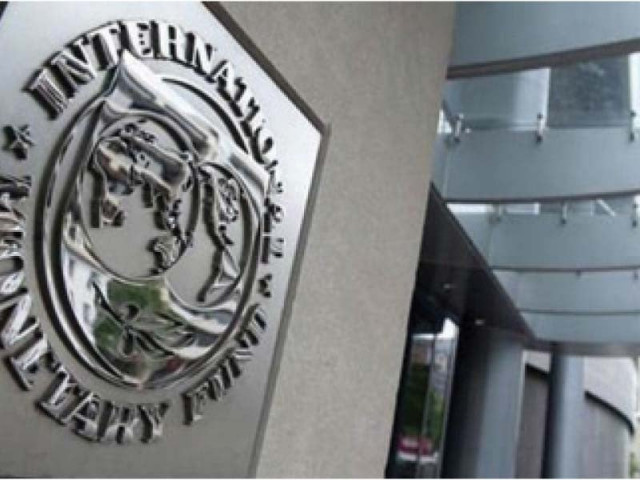A precarious economic crisis and IMF’s reforms
Pakistan will need to balance the benefits, costs of the IMF

Pakistan is facing a severe economic crisis that has been exacerbated by the global energy crisis, the COVID-19 pandemic, and rising inflation. According to the finance division report, the country’s current account deficit, which measures the gap between its foreign earnings and spending, has widened to 6.4% of GDP in the first quarter of FY23, compared to 1.1% in the same period last year. This has put pressure on the country’s foreign exchange reserves, which have fallen to $13.5 billion as of June 2023, barely enough to cover three months of imports. According to the SBP, the Pakistani rupee has also depreciated by more than 24% against the US dollar in the past seven months.
To cope with this situation, Pakistan has sought external assistance from various sources, including bilateral lenders like China and Saudi Arabia, multilateral institutions like the World Bank and the Asian Development Bank, and most importantly, the IMF.
Pakistan has a long history of borrowing from the IMF, having entered into 22 programmes since 1958. The most recent one was a $6 billion Extended Fund Facility that was approved in July 2019, but was suspended in February 2021 due to disagreements over the pace and scope of reforms. After over a month of negotiations, Pakistan and the IMF reached a staff-level agreement on November 21, 2021, to revive the EFF and complete its sixth review. The agreement involves the implementation of prior actions, notably on fiscal and institutional reforms, before final approval is given by the IMF’s executive board.
The resumption of the IMF programme is expected to provide some relief to Pakistan’s struggling economy, as it will help boost its foreign exchange reserves, strengthen its currency, and unlock funds from other donors. However, it will also entail significant costs and challenges for the country, as it will have to implement tough measures to meet the IMF’s targets and conditions. Some of these measures include: increasing revenue by raising taxes and reducing exemptions. The government has agreed to increase the fuel tax by Rs5/litre every month until it reaches Rs50/litre, which will affect the prices of transport and other goods. It has also agreed to broaden the tax base by bringing more people into the tax net and enhancing compliance.
Reducing expenditure by cutting subsidies and rationalising spending. The government has agreed to phase out subsidies for electricity and gas, which will result in higher tariffs for consumers and businesses. It has also agreed to limit its development spending and contain its wage bill.
Reforming state-owned enterprises (SOEs) by privatising or restructuring them. The government has agreed to sell or liquidate loss-making SOEs, such as Pakistan Steel Mills and Pakistan International Airlines, which have been draining public resources for years. It has also agreed to improve the governance and performance of SOEs that will remain under public ownership.
Strengthening the autonomy and accountability of the central bank by passing amendments to its law. The government has agreed to grant more independence to the SBP in setting monetary policy and managing foreign exchange reserves. It has also agreed to enhance the transparency and oversight of the SBP’s operations and finances.
Improving the business environment by removing barriers to trade and investment. The government has agreed to reduce tariffs and non-tariff barriers on imports and exports, which will increase competition and lower costs for producers and consumers. It has also agreed to simplify regulations and procedures for starting and operating businesses, which will encourage entrepreneurship and innovation.
These reforms are aimed at addressing some of the structural problems that have plagued Pakistan’s economy for decades. However, they are also likely to have negative short-term impacts on growth, employment, inflation, and poverty, especially in the context of the ongoing energy crisis and the COVID-19 pandemic. Moreover, they may face political and social resistance from various stakeholders, who may perceive them as unfair, unnecessary, or imposed by external forces.
Pakistan will need to balance the benefits and costs of the IMF programme and ensure that it is implemented in a way that minimises the adverse effects on the vulnerable segments of the population and maximises the positive effects on the long-term development of the country.
To achieve long-term stability and growth, Pakistan can also consider promoting inclusive and sustainable growth by investing in human capital and infrastructure.
Additionally, strengthening regional cooperation and integration by enhancing trade and investment ties with neighbouring countries can be beneficial.
Pakistan’s economy is facing a critical juncture that requires urgent action and reform. The IMF program offers a lifeline to the country but also poses significant challenges and risks. Pakistan will need to implement the program in a prudent and pragmatic manner while also taking preventive measures to mitigate its negative impacts and enhance its positive outcomes.
THE WRITER IS A MEMBER OF PEC AND HAS DONE MASTER’S IN ENGINEERING
Published in The Express Tribune, July 24th, 2023.
Like Business on Facebook, follow @TribuneBiz on Twitter to stay informed and join in the conversation.











1724319076-0/Untitled-design-(5)1724319076-0-208x130.webp)






COMMENTS
Comments are moderated and generally will be posted if they are on-topic and not abusive.
For more information, please see our Comments FAQ